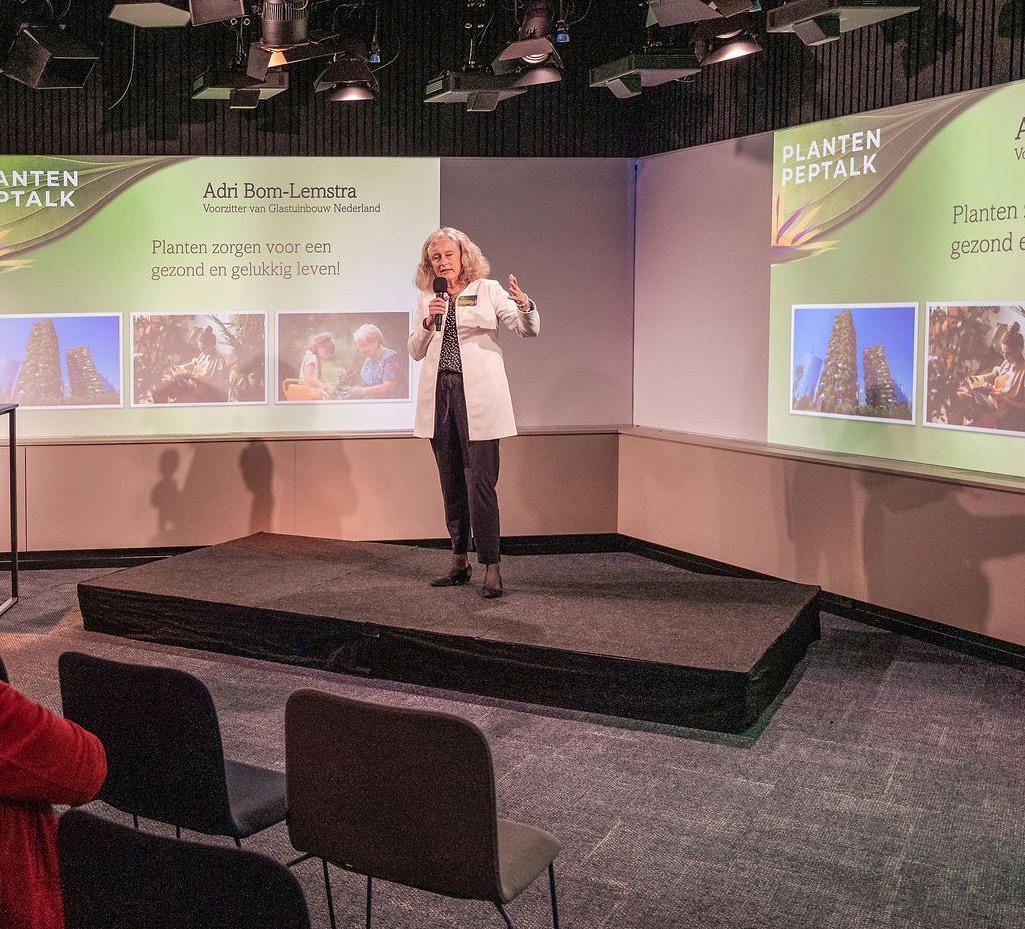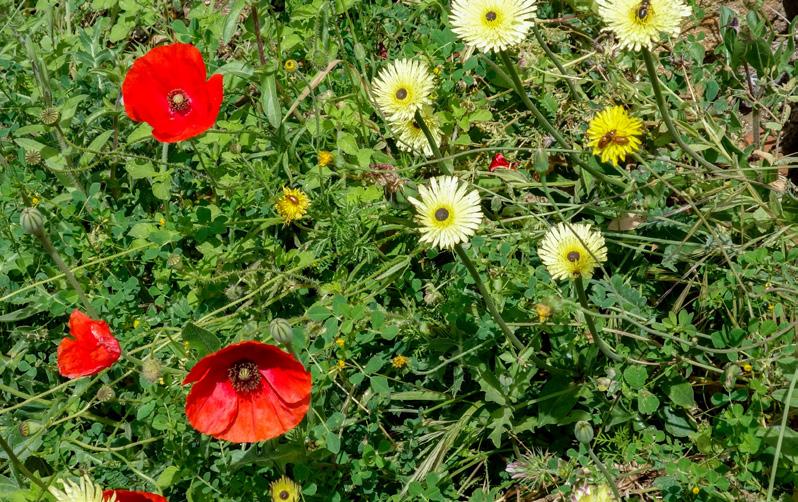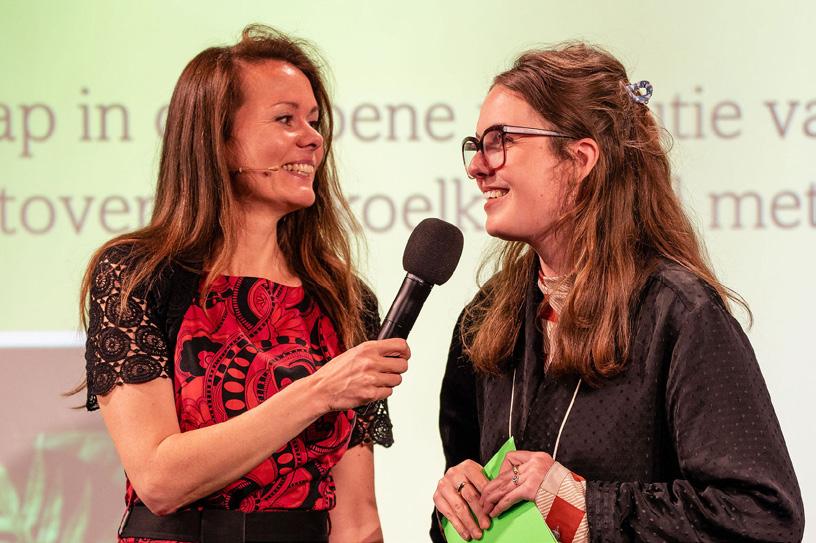
2 minute read
‘plant pledge’ future of humanity
major role. I would like to invite the Netherlands to tap into the potential of protein innovation and start trialling crops such as beans, peas, and chickpeas as they perfectly fit the global protein transition.”
Rick van de Zedde, project manager of the Netherlands Plant Eco-phenotyping Centre at Wageningen University & Research, said climate change offers opportunities. He recommends Dutch growers grow quinoa because it’s exceptionally nutritious and robust. He explained, “Farmers grew quinoa on the slopes of the Andes mountains more than 7,000 years ago. Since 1990, WUR has been involved in quinoa research using digital phenotyping. It focuses on finding quinoa which can adapt to Dutch circumstances. However, farmers still need to learn how to grow the crop, while consumers must become more acquainted with using it in mealtimes. But the crop grows literally everywhere.”
Advertisement
Adri Bom-Lemstra, President of the greenhouse horticulture industry body Glastuinbouw
Nederland said: “Flowers and plants are vital for the Dutch economy. But apart from providing food, there’s too little attention given to the many benefits plants bring to our planet. Trees and plants are the best air conditioning you can imagine. Planting urban trees and creating urban green spaces help reduce high temperatures, improving air quality. Research also found that greenery can improve physical and mental health. Plants improve concentration and productivity among office workers, students, and children. And when you put plants in a medical environment, patients tend to feel better. So, I urge everyone to bring more plants into our life.”
PLANT PEEP SHOW
Plantum hosted the Plants Peptalk during the Fascination of Plants Day.
Launched in 2015 as the firstever global horticultural event, the Fascination of Plants Day celebrates the manifold uses of plants for food, nutritional security, paper, medicine, chemicals, energy, and enjoyable landscapes.
The Fascination of Plants Day is officially on the 18 May. Still, many lectures, open days, conferences, and workshops continue at universities, botanical gardens, museums, schools, public spaces, city centre squares and parks throughout May.

Between 23-24 May, Plantum, the Dutch association for the plant reproduction material sector and co-organiser of the Dutch Fascination of Plants Day, invited visitors to their purpose-built Plant Peep Show in the Anna van Bueren Square in the Dutch city of The Hague. Inside, six small rooms, larger than a traditional phone box, they encouraged the audience to get excited by the wonder of plants. Biologist Charlotte Nederpel was available to answer questions and highlight the importance of plants and plant science. Especially considering climate change, population growth, stressed plants, a global crop protection market in motion, and a new generation interested in plant-based foods.

Plant Fact Three
Many plants bloom in May. Humans relax when they smell the scent of freshly mown grass. However, this odour is a defence mechanism triggered by a chemical released by freshly cut grass - a sign that the plant is unhappy. The pertinent question is if we humans care for the happiness of plants, maybe we should ‘listen’ to them more. Initiatives such as ‘No Mow in May’ are helping to raise awareness and protect pollinator populations. Also, it is a given fact that ‘blooming kerbsides’ make people happier.










